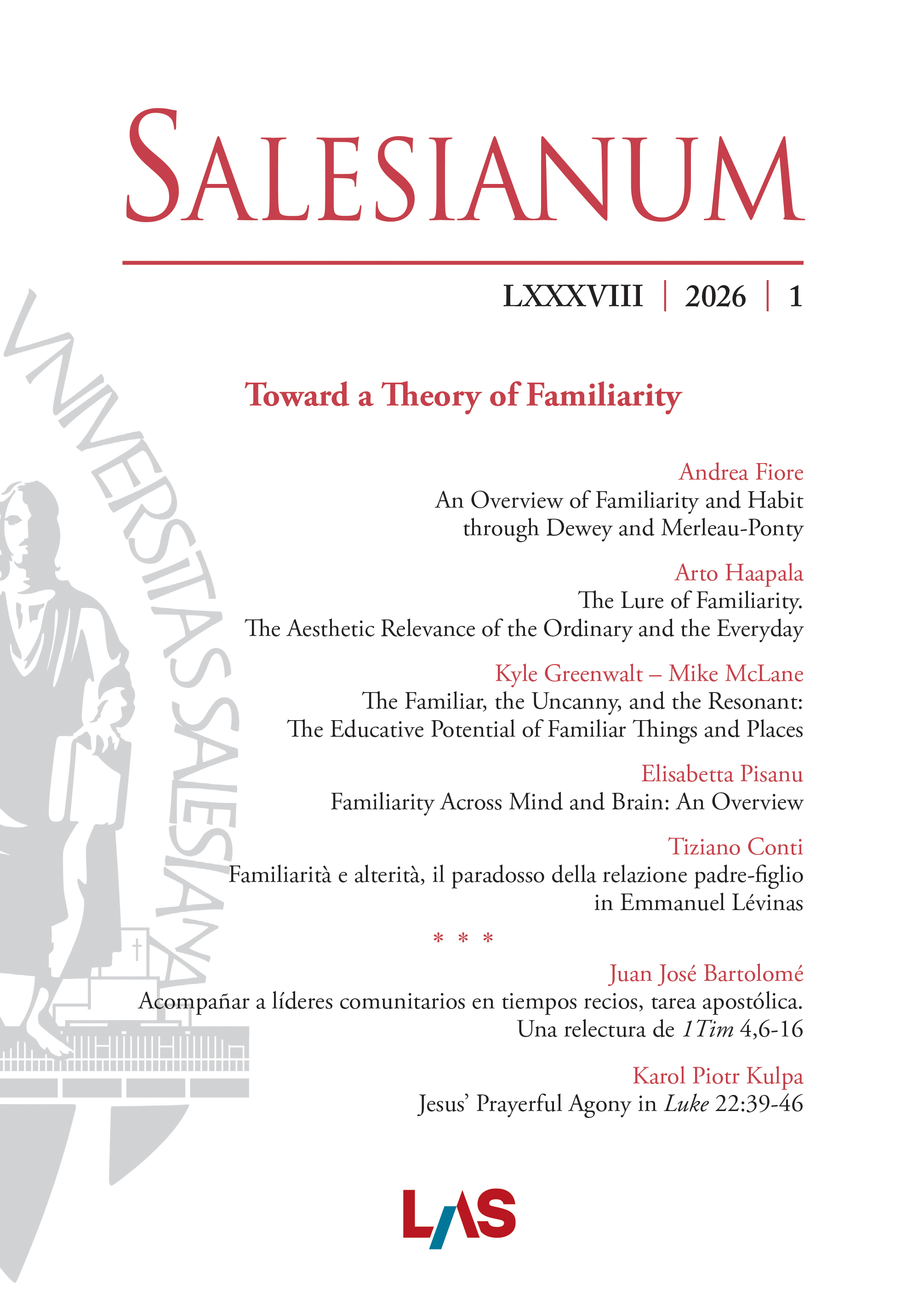Coscienza morale e vita autentica. Spunti dal confronto fra John Henry Newman e la sensibilità etica contemporanea
Salesianum vol. 74 (2012) n. 1, 101-141
Sezione: Studia
Sommario
Il pensiero di John Henry Newman, in particolare sulla coscienza morale, costituisce uno strumento di grande incisività per riflettere sulle direzioni che la sensibilità etica contemporanea ha aperto all’uomo portando alle estreme conseguenze le trasformazioni dell’età moderna. Newman dialoga alla pari con i filosofi più significativi del nostro tempo e, soprattutto, con i temi e le sfide che lo caratterizzano, avendoli affrontati nel loro stato nascente nel corso dell’Ottocento. Così, egli coglie l’insufficienza della coscienza morale auto-referenziale dell’utilitarismo e del razionalismo liberale; comprende i limiti del relativismo e del soggettivismo emotivistico ad essi intrinseci, prefigurando gli esiti ai quali li avrebbe condotti il nichilismo; e, pur consapevole del disgregarsi dei tradizionali sistemi morali, ne salva la portata universale, come nel caso del cristianesimo e dell’etica aristotelica. Ne emergono due idee di autenticità dell’esistenza morale: l’una, tutta rivolta nella fedeltà dell’uomo a se stesso e nella riduzione della coscienza a voce silente; l’altra, impegnata nel riconoscere il costitutivo fondamento di sé in una trascendenza, che la rende “ideale” morale.
Abstract
The thought of John Henry Newman, particularly on moral conscience, is a very incisive instrument in order to consider the directions which are opened by contemporary ethical feeling till to the extreme effects of modern transformations. Newman deals with the most meaningful philosophers of our time on equal terms, as well as with the contents and the challenges which characterize it, since he faced them rising during the XIX century. Therefore he can grasp the insufficiency of Utilitarian and Rationalistic conscience which is self-referential; he can understand the limits of Relativism and emotivistic Subjectivism, and prerepresents the effects which Nihilism would have provoke from them; and, though he is conscious of the break up of traditional moral systems, he saves their universality, as it happens in the case of Christianity and Aristotelian ethics. Two ideas of authenticity of moral existence come from all this: the one is reduced to loyalty of man to himself as well as the conscience is reduced to a silent voice; the other is engaged in recognizing its own ground in a transcendence which makes it a moral “ideal".
